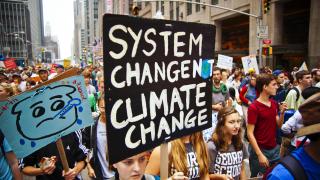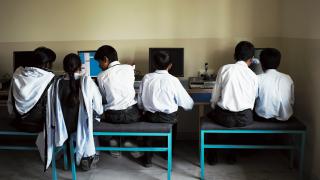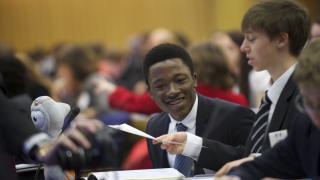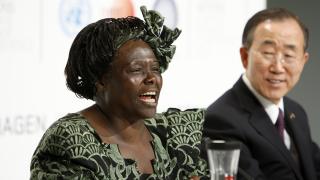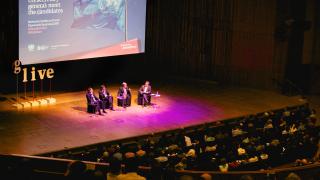
Nan Buzard, Executive Director, International Council of Voluntary Agencies
In 2016, for the first time there were significant improvements in the transparency of the process to select a new UN Secretary-General and the WHO Director-General. This has not always been the case when filling leadership posts in the UN, as demonstrated by the largely closed-door nomination and selection process for the post of UN High Commissioner for Refugees (UNHCR).
After a closed process in 2000 with no official opportunity for input from NGOs, in 2005, efforts to take a new approach to appointing the High Commissioner were welcomed by civil society. The UN Secretariat sent letters to governments and notably also some NGOs, asking for nominations with a list of criteria to guide nominations.
As the UN seeks to reassert its values and value, the demand for trust and transparency is at an all-time high.
The International Council of Voluntary Agencies (ICVA) sought to complement the process from the outside by writing to known candidates with a questionnaire, giving candidates a platform to present their vision for the role, with the results published online. While this initiative was hampered by the absence of a public list of candidates, meaning that civil society could only engage those announced by their governments or heard of informally, the success of the exercise made it clear that there was a willingness from candidates to participate in such an initiative.
During the run-up to the 2015 UNHCR appointment, a similar ICVA initiative met with an additional obstacle – a lack of support from the UN Secretariat, who justified their opposition on the grounds of confidentiality, citing a 2012 General Assembly resolution containing guidance on the appointment of senior managers. This development was unfortunate given that the majority of known candidates were keen to participate – indicating a comfort with, and expectation of, such public discourse.
Senior UN appointment processes including the UNHCR would benefit from the sort of gains in transparency and civil society participation witnessed in the recent Secretary-General and WHO Director-General appointment processes. Recommendations for UN action on this front should include the following:
- Candidacies for USG, DSG and SG positions should be made public along with a requirement that candidates provide written and oral vision statements
- Candidates should be encouraged to answer questions posed by relevant civil society organisations with knowledge of the issues related to the agency/position
- Qualified candidates should be able to demonstrate their advocacy for and their work with civil society on issues of concern
As the UN seeks to reassert its values and value, the demand for trust and transparency is at an all-time high. People around the world are seeking what is real and true. A transparent process does not contradict the role of management or of a selection committee but rather provides important additional scrutiny and credibility.
In a world with new threats and increasing instability, the UN needs the best leaders and managers. Initiating clear, open discussion between candidates and the public they serve will contribute to the identification and hiring of the most qualified candidates.
The 2017 creation of the Executive Committee of the Secretary General, along with its commitment to maximising the impact on public perception and generating coherence across the UN system, provides a strong basis for furthering the regularisation of transparent recruitment processes for senior positions.
About the author
Nan Buzard is Executive Director of the International Council of Voluntary Agencies. She also has experience with the International Federation of Red Cross and Red Crescent Societies, American Red Cross, UNHCR and various other non-government and private sector organisations.
Photo credit: Bjørn Heidenstrøm/CC

